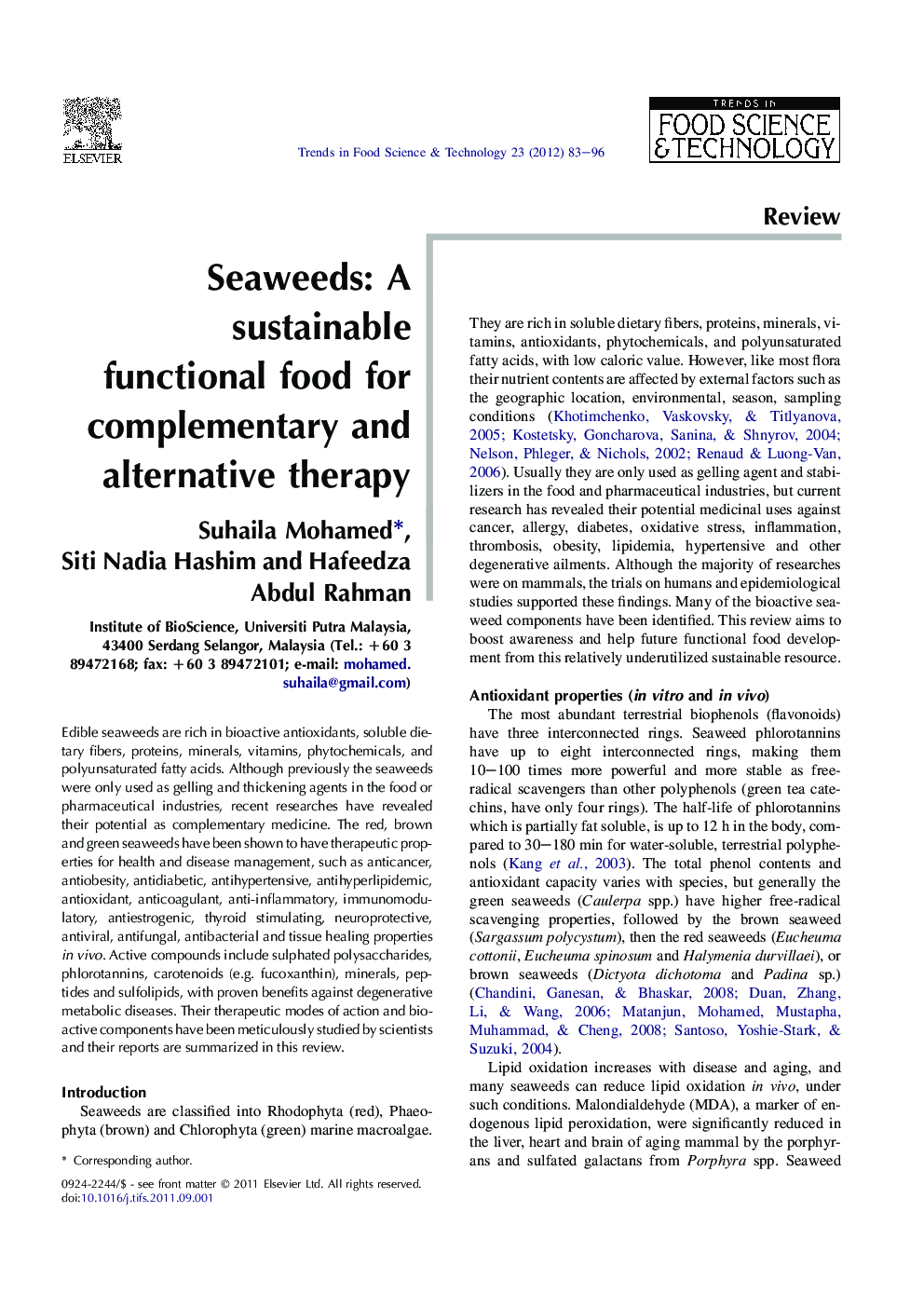| Article ID | Journal | Published Year | Pages | File Type |
|---|---|---|---|---|
| 10894858 | Trends in Food Science & Technology | 2012 | 14 Pages |
Abstract
Edible seaweeds are rich in bioactive antioxidants, soluble dietary fibers, proteins, minerals, vitamins, phytochemicals, and polyunsaturated fatty acids. Although previously the seaweeds were only used as gelling and thickening agents in the food or pharmaceutical industries, recent researches have revealed their potential as complementary medicine. The red, brown and green seaweeds have been shown to have therapeutic properties for health and disease management, such as anticancer, antiobesity, antidiabetic, antihypertensive, antihyperlipidemic, antioxidant, anticoagulant, anti-inflammatory, immunomodulatory, antiestrogenic, thyroid stimulating, neuroprotective, antiviral, antifungal, antibacterial and tissue healing properties in vivo. Active compounds include sulphated polysaccharides, phlorotannins, carotenoids (e.g. fucoxanthin), minerals, peptides and sulfolipids, with proven benefits against degenerative metabolic diseases. Their therapeutic modes of action and bioactive components have been meticulously studied by scientists and their reports are summarized in this review.
Related Topics
Life Sciences
Agricultural and Biological Sciences
Food Science
Authors
Suhaila Mohamed, Siti Nadia Hashim, Hafeedza Abdul Rahman,
